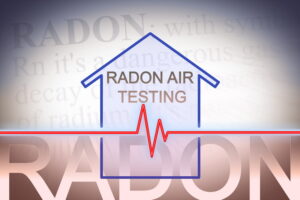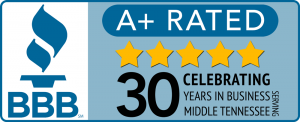
Radon is a silent
killer—you can’t feel it, smell it, or taste it. So you could be breathing in
high amounts of this toxic gas and not even know it. In addition, exposure to
radon over time puts you at risk of developing severe health complications.
According to the EPA, radon exposure is one of the leading causes of lung cancer, and it’s the number one cause of the disease amongst non-smokers.
Even more shocking is
that experts believe that 1 in 15 homes in the U.S. has a high amount of radon.
That’s why it’s crucial
to increase your awareness about this radioactive gas.
What is radon? How do you know if your home needs radon testing? Today we answer these questions and more.
What is Radon Gas?
Radon is a colorless,
tasteless, odorless radioactive gas. It starts out as uranium, a heavy metal
found in the ground. This metal then breaks down and forms radon.
As radon gas rises, it
becomes a part of the air and water. So there’s a chance that radon is already
in the air you breathe, but it’s typically in trace amounts that aren’t
hazardous. Radon only becomes harmful when you’re exposed to significant
concentrations.
Our homes, particularly
basements, collect radon gas where it can build to dangerous levels. Radon can
also enter your home through crawl spaces.
As the gas goes through the soil, it can enter cracks and openings. It can also contaminate groundwater and enter through pipes, sump pumps, and drains.
What Are the Symptoms of Radon Exposure?
When you breathe in
radon, it enters your lungs and releases radiation. Over time, it damages
cells, which leads to lung cancer.
Radon exposure is the second largest cause of lung cancer. And about 2,900 people die each year from lung cancer related to radon exposure.
Here are some early
warning signs of radon exposure:
- Shortness of breath
- Wheezing
- Hoarseness
- Chest pain
- Frequent respiratory infections
- Loss of appetite
- Fatigue
- Coughing up blood
If you experience any of these symptoms, see a doctor right away. Unfortunately, there aren’t any tests that determine if you’ve been exposed to high radon levels. And no treatment will rid it from your body. So if you suspect you’ve been exposed, talk to your physician about whether you should get tested for lung cancer.
How Do You Know If Your Home Needs Radon Testing?
The only way to know if
your home has dangerous radon levels is to conduct a radon test. You can
purchase a DIY radon test from your local home improvement store. However, the
most reliable test is performed by a professional. In addition, radon tests
require specific labs to get the most accurate result.
If your home tests positive for high concentrations of radon, the next step is installing a radon mitigation system. Radon mitigation systems are easy to maintain, and they’re a small investment. And thankfully, there are many options for radon testing and mitigation in Nashville, TN.
Looking for a radon mitigation professional? Contact Precision Air, Inc for your radon testing and mitigation. Comfort is a must, call the experts you trust.











